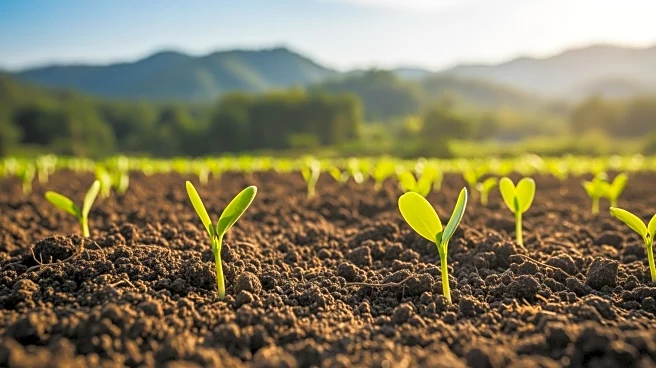What's Happening?
The Pan-African Parliament has adopted the continent's first Model Law on Sustainable Soil Management, marking a historic step forward for sustainable development, food security, and environmental protection. The law provides a legal framework for safeguarding
soils and strengthening resilience to climate change. Developed by African experts with international support, the law encompasses various dimensions of soil governance, including sustainable agriculture, climate mitigation, and public participation.
Why It's Important?
The adoption of the Model Law on Sustainable Soil Management is a significant milestone for Africa, which holds a substantial portion of the world's uncultivated arable land. By providing a comprehensive framework for soil governance, the law aims to enhance food security, promote sustainable agriculture, and strengthen resilience to climate change. This initiative reflects Africa's commitment to leading its own environmental governance and could serve as a model for other regions seeking to address soil health and climate challenges.
What's Next?
African nations are expected to adapt and implement the Model Law within their local contexts, focusing on sustainable soil management and climate resilience. The law also serves as a platform for cooperation and innovation across the continent, with potential synergies with Europe's evolving soil framework. The international community will be watching closely to see how these measures are executed and whether they lead to meaningful progress in addressing soil health and climate challenges.
















